
The fires killed 27 people, destroyed more than 12,000 structures and burned more than 60 square miles. (Photo by Brenda Verano/CALÓ News)
In the wake of the devastating wildfires ignited in the different corners of Los Angeles County, people and mutual aid efforts began to rapidly mobilize to support L.A. County residents affected by the fires and whose neighborhoods faced the brunt of the destruction in Pacific Palisades, Pasadena and Altadena.
In the face of the crisis, people began sharing links to GoFundMe campaigns, volunteering at evacuation centers, raising money for first responders and offering free therapy. Many also opened their homes to those facing housing insecurity.
Price gouging
But just as deeply, well-meaning community efforts began, others have begun taking advantage of the housing needs and exploiting vulnerable families struggling to rebuild and rehouse after the fires. Rental price gouging is a phenomenon seen more and at a bigger scale after the fires that killed 27 people, destroyed more than 12,000 structures and charred more than 60 square miles.
Price gouging refers to the act of landlords, real estate agencies and/or other property managers exorbitantly raising the rent for a property or raising a tenant’s existing rent at an unconscionable price during an emergency or disaster, a practice that many housing rights advocates say is inhumane, being led by opportunistic landlords looking to make money out of people’s desperation.
After a declared emergency such as the fires, renters are protected from rental housing price gouging and unfair rent hikes. Both California state law (Penal Code Section 396) and the L.A. County Code (Chapter 8.09) prohibit rental housing price increases exceeding 10% during a declared state of emergency.
In a press conference Thursday morning, California Attorney General Rob Bonta said his office is actively investigating numerous price gouging complaints, which could result in criminal fines of $10,000 per violation. “Folks across the region are being preyed on by greedy businesses and landlords, scam artists and predatory buyers looking to make a quick buck off their pain,” Bonta said. “They are seeking to re-victimize the victims of the fires, to exploit them in their vulnerable state.”
Despite being illegal in California, price gouging has been detected at an all-time high since the Eaton, Palisades and Hursts fires began.
Rent Freeze and Eviction Moratorium
In response, amid the one-week anniversary since the devastating wildfires ignited, more than 30 community organizations and advocacy groups called for a county-wide eviction moratorium to physically and economically protect and safeguard renters in the county during and after the fires.
The Keep LA Housed Coalition, made up of organizations including CHIRLA, Strategic Actions for a Just Economy (SAJE), ACT-LA, T.R.U.S.T. South LA, Legacy LA and Latino Equity Alliance, among others, are demanding L.A. County entities such as the L.A. Board of Supervisors, the Los Angeles Superior Court, the L.A. County District Attorney's Office and the L.A. County Sheriff Department to use their respective and expanded powers during a state of emergency to create and institute clear and uniform eviction protections countywide, as well as to prevent spikes in rents and price gouging.
“This is a devastating time for all of Los Angeles. The wildfires have displaced thousands of residents, destroyed homes and caused significant economic losses,” said Nancy Villanueva, lead organizer with the Alliance of Californians for Community Empowerment (ACCE Institute), a national organization supporting Indigenous leadership development, policy creation and civic participation and who is part of the Keep LA Housed Coalition. “At the epicenter of this are working-class people who are coming forward in need of urgent assistance as they face a range of challenges. Many people did not only lose their homes; they lost their jobs; they lost their economic security.”
Oscar Zarate and Chelsea Kirk, organizers with SAJE, created a spreadsheet and Google Maps spread that documented more than 1,250 cases of potential price gouging based on online records from real estate brokerage Zillow. Many of the listings doubled and tripled in price after the fires.
The Los Angeles Times also recently reported on different families and residents who have been heavily immersed in a regionwide house hunt looking for homes to rent, lease or buy and instead finding flagrantly overpriced rental units and bids.
According to the Keep LA Housed Coalition, some of the most affected tenants are those who have been evicted because their landlords, having lost their own homes in the fires, now seek to
reclaim rental properties for personal use, as well as others who have lost their homes entirely and are left questioning their rights as tenants, including whether they are entitled to return to their units after rebuilding and if landlords are obligated to provide financial assistance or alternative housing in the interim.
“Mainstream media and social media have shown us the great impact and multi-million loss of houses and mansions that were destroyed due to the fires, and although important, where does that leave the stories and experiences of working-class people?” Villanueva said. “This is the time for protections to come into place. None should be in danger of eviction or going to court to be able to stay housed during times like these.”

The County’s COVID-19 Tenant Protections Resolution, formerly the L.A. County Eviction Moratorium, took effect March 4, 2020. Photo by Aaron Sousa
One of the key demands from the coalition is for the L.A. Superior Court and the L.A. County Sheriff to delay eviction cases and for the courts to also consider suspending parking enforcement in affected, air-polluted areas such as the City of L.A., Santa Monica, Malibu, Calabasas, Pasadena, La Canada-Flintridge, Glendale and unincorporated parts of L.A. County.
The Keep LA Housed Coalition also asks for an emergency eviction moratorium and protections for renters that include no-fault evictions, particularly owner move-in evictions, that “need to be narrowly limited to prevent abuse and ensure that any tenants displaced at this time are given adequate time and financial resources to secure replacement housing,” as stated by the coalition.
The coalition’s proposed moratorium also looks to ban algorithmic rental price fixing and tenant screening, enforce anti-price gouging laws and limit evictions. According to the coalition, because of the significant loss of commercial centers, small businesses and families that employed renters living throughout the county, tenants should not be evicted for failing to pay rent at a time when their income has been disrupted.
“When we talk about the affected people, we talk about people who lost their homes [in the affected areas] but also people who may have not lived there but who worked in these areas. Without employment, they are all also in danger of not being able to pay their bills, the biggest one being their rent,” Villanueva said. “This already adds to the ongoing housing crisis that L.A. faces.”
Housing insecurity today and in the past
As stated by the 2024 Greater Los Angeles Homeless Count, there were 75,312 unhoused people in the county and 45,252 unhoused in the city of L.A. in 2024. Despite the improvements in the overall numbers of the homeless population in the county in the last year, the Latino homeless population is still disproportionately large. According to the report, Latinos made up the largest percentage of homeless individuals (43%). They were followed by Black people (31%) and whites (29%).
Community organizations expect the fires to have long-term effects on housing and housing security.
County-wide measures to protect tenants in times like these are not unusual and something the county has done before.
The County’s COVID-19 Tenant Protections Resolution, formerly the L.A. County Eviction Moratorium, took effect March 4, 2020 and provided certain protections to residential tenants, commercial tenants and mobile home space renters affected by the pandemic. The resolutionprotected against eviction, created anti-harassment and retaliation protections and allowed for renters to have up to 12 months to repay past-due rent owed. It expired March 31, 2023.
“We have seen similar protections like this in the past. It is not something that is impossible or far-off for our county leaders to pass,” Villanueva said.
More locally in L.A. County, conversation about a moratorium on evictions for tenants affected by the fires and a one-year pause on rent hikes has already begun.
Efforts in L.A. County
On Tuesday, L.A. City Councilmembers Eunisses Hernandez (CD-1) and Hugo Soto-Martínez (CD13) introduced a motion that calls for a moratorium on evictions for tenants affected by the fires and a one-year pause on rent hikes through January 2026.
“The devastation caused by last week’s fires will unfortunately linger long after the flames have been extinguished. Through lost jobs, shuttered businesses and widespread economic hardship, families across Los Angeles will face increased housing insecurity,” the motion stated. “In Lahaina, Hawaii, the median rent surged 44% in the year after the 2023 Hawaii wildfires.”
Although the motion was delayed, the rent freeze proposal has been referred to a committee, with a hearing expected soon.
Current or prospective renters who believe they have been victims of rental housing price gouging should also report it to the California Attorney General at oag.ca.gov/report.
Here’s how to file a price gouging complaint:
Online: online complaint reporting tool
By Phone: 800-593-8222
Email: info@dcba.lacounty.gov
To read Keep LA Housed’s full emergency eviction moratorium and protections for renters, click HERE.

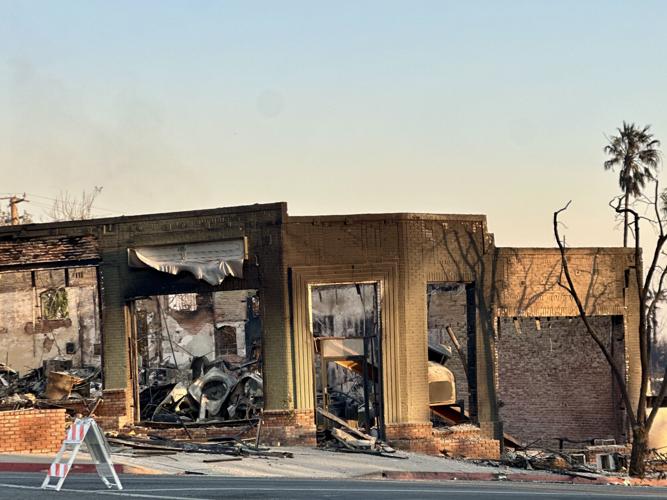
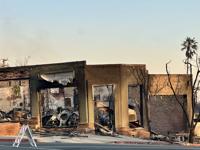
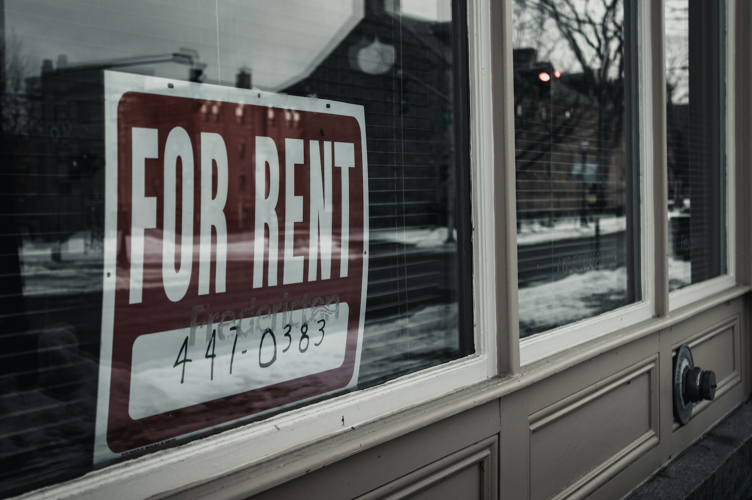
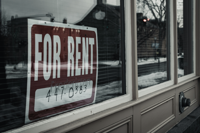







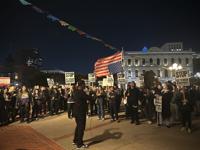
(0) comments
Welcome to the discussion.
Log In
Keep it Clean. Please avoid obscene, vulgar, lewd, racist or sexually-oriented language.
PLEASE TURN OFF YOUR CAPS LOCK.
Don't Threaten. Threats of harming another person will not be tolerated.
Be Truthful. Don't knowingly lie about anyone or anything.
Be Nice. No racism, sexism or any sort of -ism that is degrading to another person.
Be Proactive. Use the 'Report' link on each comment to let us know of abusive posts.
Share with Us. We'd love to hear eyewitness accounts, the history behind an article.